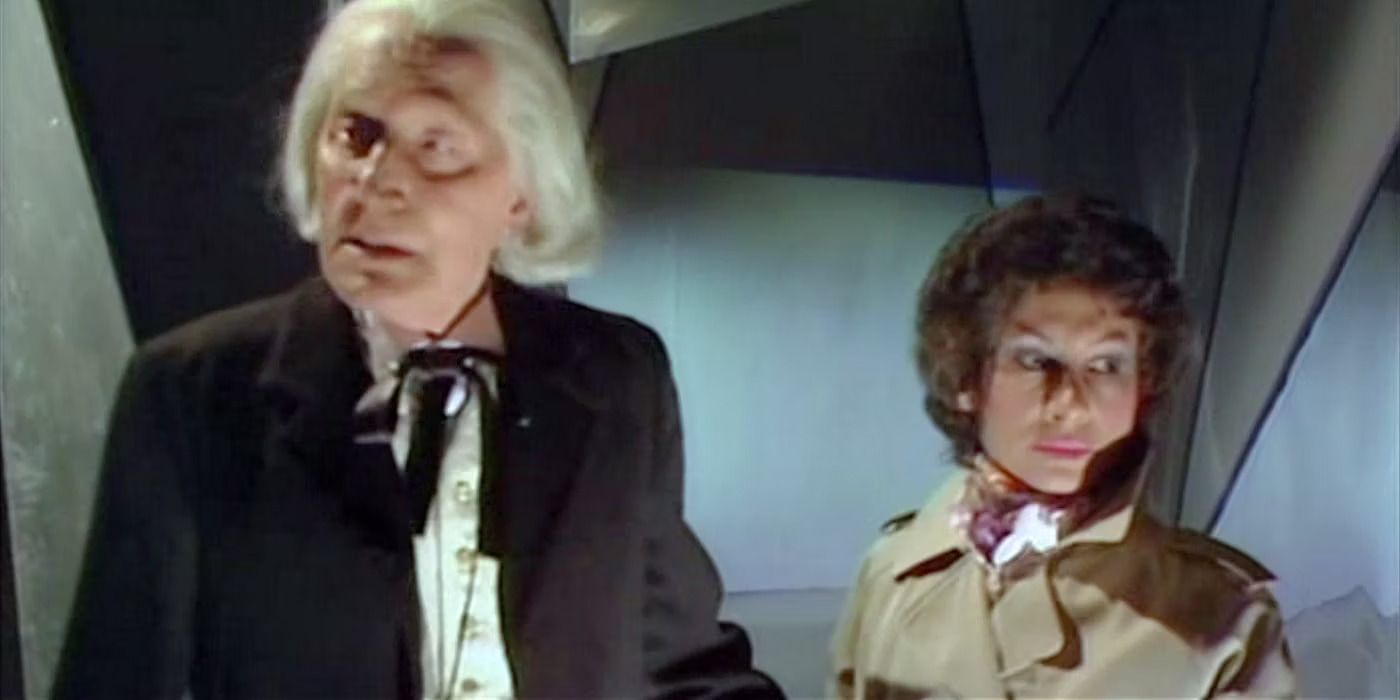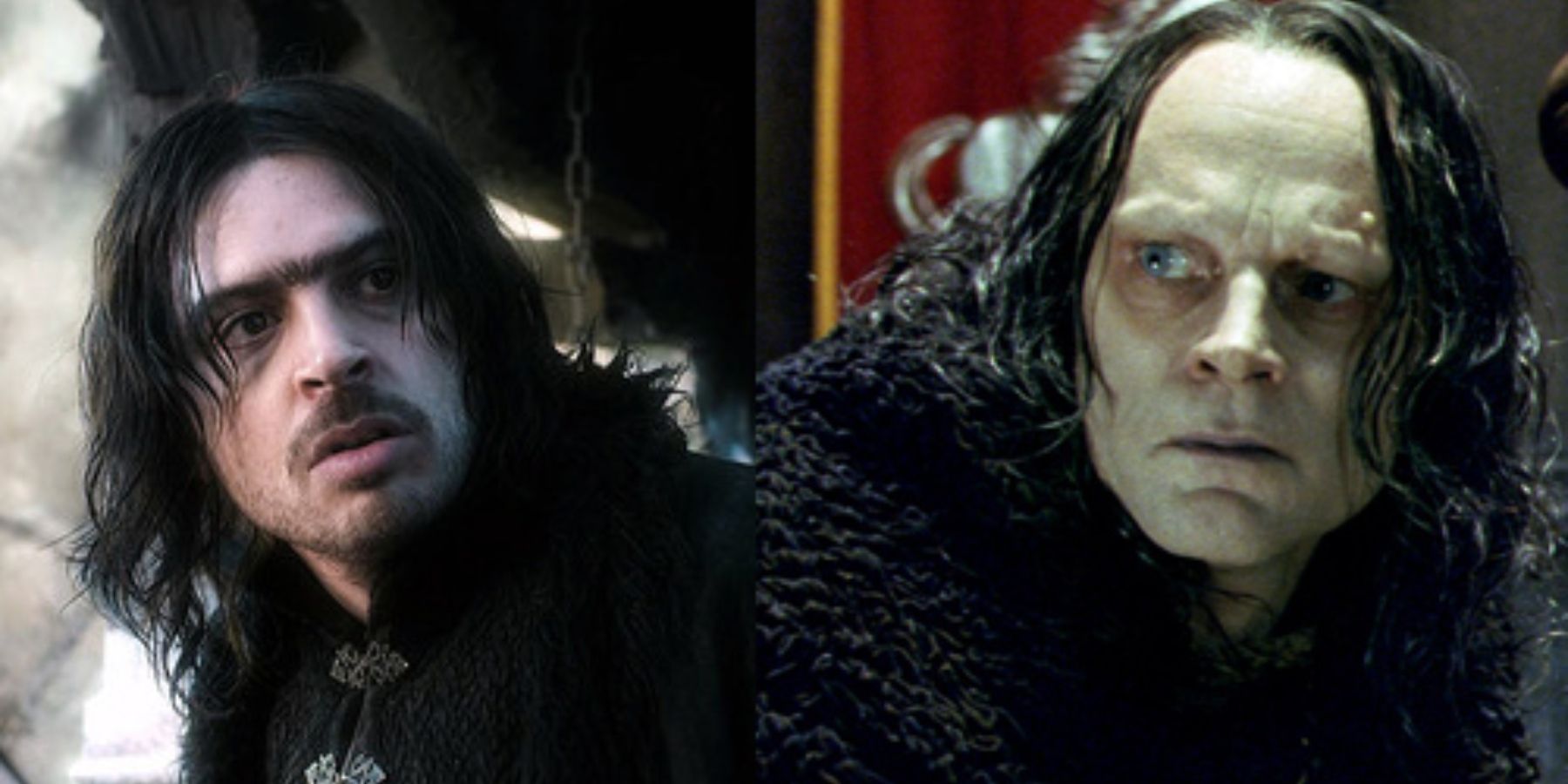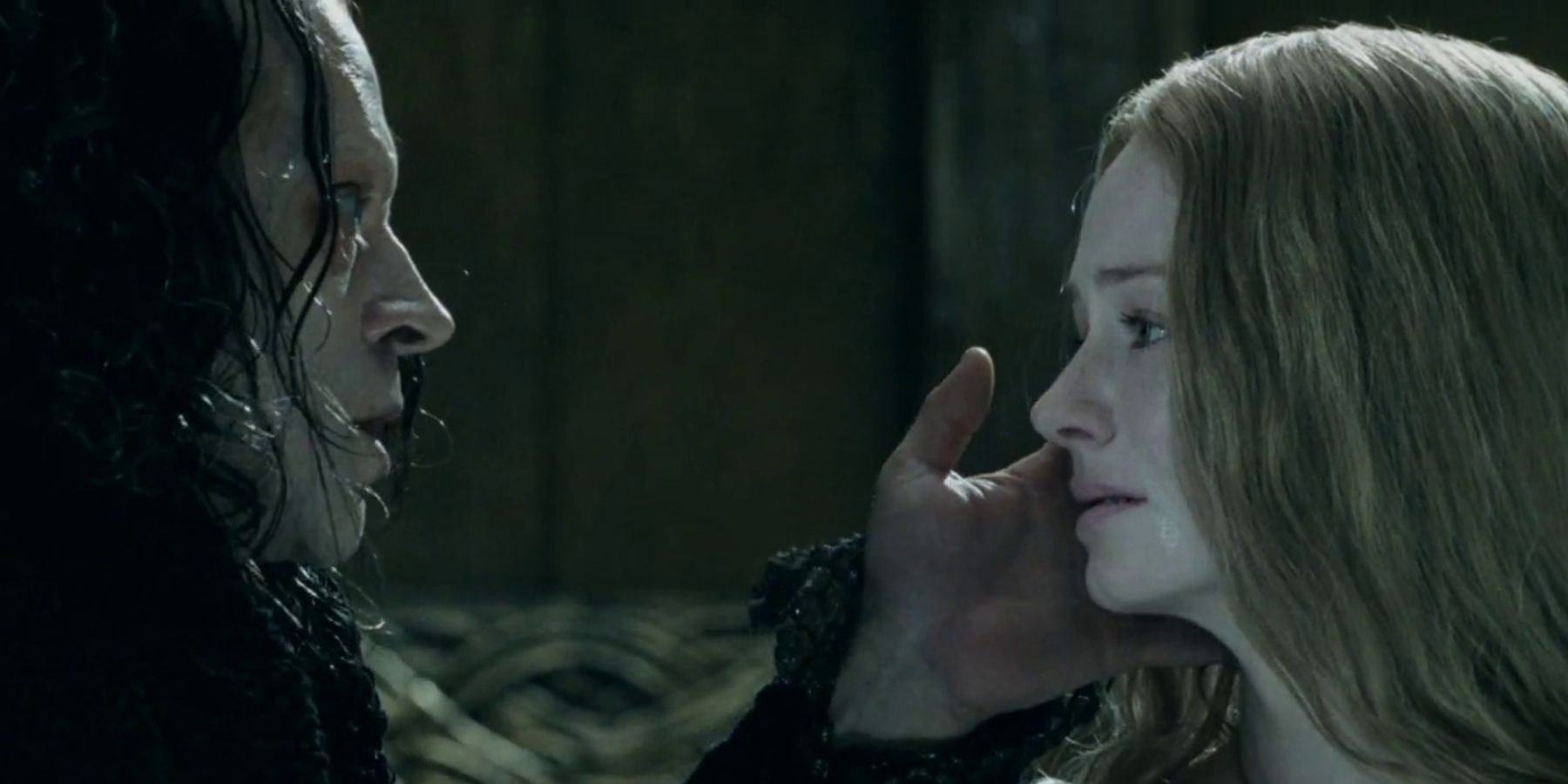There are lots of links between The Hobbit films and the Lord of the Rings films, because The Hobbit took place exactly 60 years before the fellowship's quest, and therefore feeds into the events that came after it. The audience can of course see Bilbo as an older hobbit, about to celebrate his 111th birthday when the ring passes down to his heir Frodo, and then there’s Legolas, the woodland elf of Mirkwood who becomes one of the fellowship that set out from Rivendell to take the ring to mount doom and destroy it.
But for all the obvious crossovers and links between the two sets of films, fans have come up with a surprising theory that is not well known. There are two characters in The Hobbit and the Lord of the Rings who are very similar. They show a lot of the same personality traits: lust and desire, clinging to those of greater power, putting self-preservation above all else, and portraying themselves to the masses as a good person, with valiant intentions, whilst skulking around in the shadows and stabbing people in the back to suit their own purpose.
These two characters even look similar, with dank black hair that stick greasily to their foreheads, yellowing teeth, and a macabre dark dress code that only highlights their pale, sallow skin. The two characters in context are of course Alfrid, the Master of Lake Town’s servant, and Wormtongue, the servant of King Theoden who later switches allegiance to follow in the footsteps of the wizard Saruman.
Some fans have come up with the theory that these two characters may be related. In some ways, this is plausible, because the films are set 60 years apart, so Alfrid could in theory be Grima Wormtongue’s father, or even a distant relation like a cousin. Grima is lecherous and lustful over Eowyn, and is happy to betray his kingdom for the promise that Saruman will reward her to him as a prize for his deception, in the same way that Alfrid is lustful over gold, and is willing to put Bard’s daughters in harms way so that he can escape from the battle with his fortune and leave the others to die.
When confronted about their betrayals, both characters proclaim that they were only trying to serve their masters, and were only trying to do what is right for their kingdoms, but in both cases, they were only trying to line their own pockets and reap the rewards of better men.
And of course, when the tides start to turn, and things don’t look to be going the way they planned, both characters switch loyalties very quickly, demonstrating that they are fickle and changeable, rather than honest and true. For Alfrid, he holds up Bard’s hand, declaring him the new leader of Lake Town, trying to get himself in Bard’s good books after he defeats the dragon despite having ridiculed and butted heads with the Lakesman for the entire trilogy up to this point.
Bard very quickly sees through this ruse, and puts Alfrid back in his place, but shows himself to be a quality leader when he prevents the angry survivors of the village from killing Alfrid and taking their anger out on him. This scene is very similar to the scene in the Lord of the Rings when Theoden wants to take out his own wrath and vengeance on Wormtongue, who he now realises has betrayed him and poisoned his mind (and possibly his son). Theoden raises his sword and Aragorn, just like Bard, prevents any further violence. Subsequently Grima, just like Alfrid, goes running off to the next most powerful figure: Saruman.
Whether or not these two characters are related however, is a difficult question to answer. Although Alfrid is one of the best additions to The Hobbit movies, he is an addition nonetheless, as he doesn’t appear anywhere in the books. Therefore, it is entirely possible that he and Grima could share the same lineage, the same blood, but this is never recorded anywhere in Tolkien’s works. There is no mention in the movie trilogy that Alfrid has a wife or children, he seems far too selfish to have ever loved someone more than he loves himself or his gold, so it seems less likely that he would be Wormtongue's grandfather, as there isn’t a single person within the stories that fans can picture choosing to procreate with such a slimy, duplicitous weasel.
Even if they aren’t related, their functions and purposes within the stories certainly are, and they both meet the same grisly (but well deserved) fate. For Alfrid it’s being catapulted into the mouth of a troll during the Battle of the Five Armies, and presumably suffocating to death, and for Wormtongue it’s being shot by a band of hobbits in The Shire after he turns tides once again and slits Saruman’s throat. Both characters serve to highlight how the race of men can be easily corrupted and lured to a dark fate, and to contrast the heroes of the stories who show all the redeeming, admirable and strong qualities in the race of men, and why, ultimately, the few good and brave men are strong enough to win out over the many weak and shifty ones.






